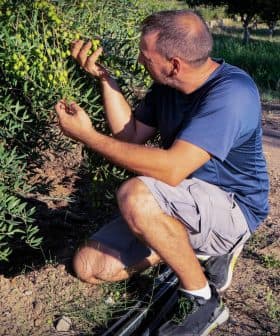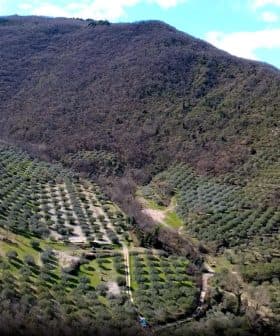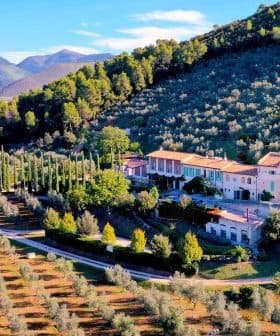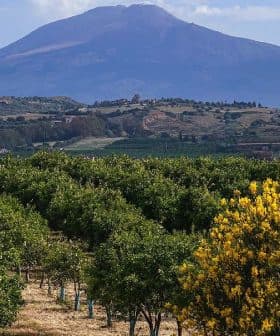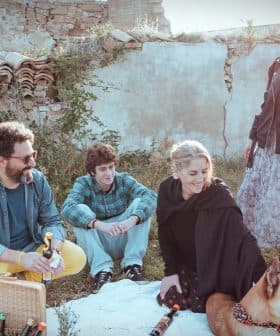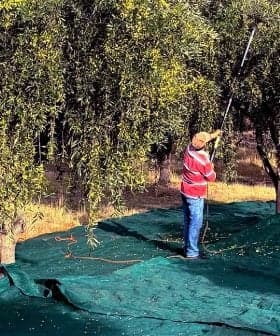Acclaimed Moroccan Producer Aspires to a More Sustainable Future
Noor Fès leverages its size to improve quality through vertical integration and hopes to set an example with its sustainable practices for other Moroccan olive farmers.
 Noor Fès celebrated winning a Gold Award at the 2025 NYIOOC World Olive Oil Competition. (Photo: Noor Fès).
Noor Fès celebrated winning a Gold Award at the 2025 NYIOOC World Olive Oil Competition. (Photo: Noor Fès). Noor Fès is a unique olive oil producer in Morocco, aiming to double its production capacity by expanding its olive tree acreage. The company focuses on quality, sustainability, and consumer education, earning recognition for its native Moroccan Picholine olive oil at international competitions.
Despite its position as the world’s eighth-largest olive oil producer, Morocco is mainly comprised of small-scale olive farms, few of which operate dedicated olive mills.
This makes the award-winning producer Noor Fès quite unusual, with 70,000 olive trees spread over 320 hectares at the southern end of the Rif Mountains.
“Our goal is to reach 600 hectares, which will allow us to double our olive oil production capacity in the coming years,” founder and owner Mohammed Dakir Berrada said.
As always, the main challenge remains water availability. Climate change is reshaping our environment, but it also pushes us to do better.
“Morocco is one of the largest producers of olive oil on Earth, but the way most people produce it is very outdated,” he and general manager Ghizlane Tazi told Olive Oil Times. “That’s why we have large mills across the country that we call masra. All those small farmers harvest their olives and then bring them to the mills, sometimes very far away.”
Dakir Berrada and Tazi contend that many consumers in Morocco are accustomed to “lower-quality olive oil” because many small farmers leave their olives at a single local mill.
“Once they get there, they often have to wait, because everyone harvests at the same time, and there’s a queue,” Dakir Berrada and Tazi said.
See Also:The Challenges and Opportunities Facing Morocco’s Olive Oil SectorAs a result, many olives are no longer fresh when finally milled, with a substantial negative impact on the quality of the oil.
“What Noor Fès is doing in Morocco is quite new. And we are reaching out to farmers and consumers to talk about quality, mechanization, sustainability and technology,” Dakir Berrada and Tazi said.
The farm organizes events and programs to educate consumers about olive oil quality and provide instruction around harvesting and milling best practices.
The company’s bona fides in the realm of quality were confirmed by its fifth consecutive Gold Award, earned for its native Moroccan Picholine monovarietal, at the 2025 NYIOOC World Olive Oil Competition.
“This excellence is the result of our meticulously selected fruit variety, an extra virgin olive oil that is rich in aroma and truly representative of the quality and character of our terroir,” Dakir Berrada and Tazi said.
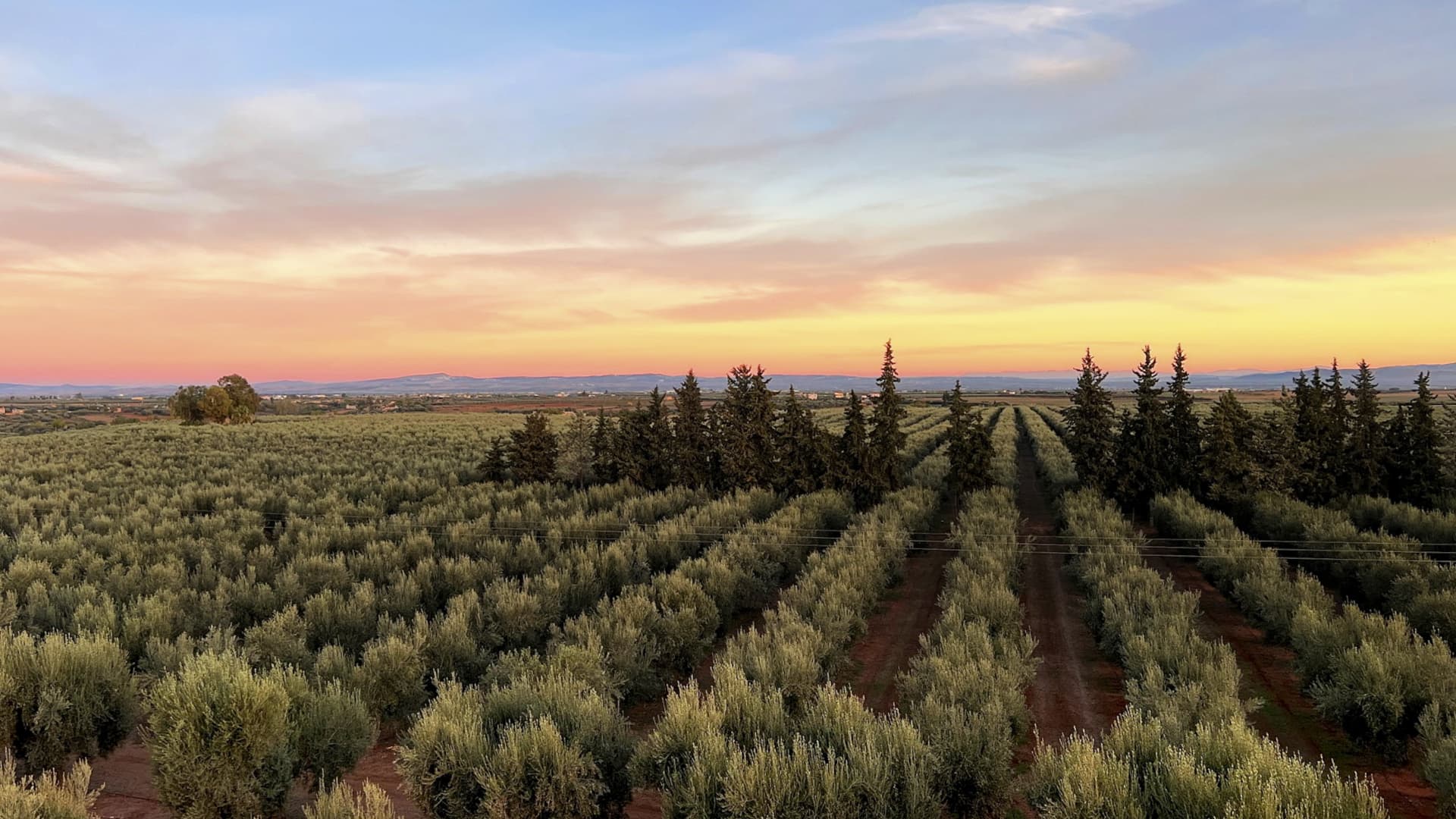
Boasting 70,000 olive trees on 320 hectares, Noor Fès is one of Morocco’s larger producers. (Photo: Noor Fès)
“We’re proud to see Noor Fès recognized on the international stage. It affirms not just the strength of our brand, but also the value of Moroccan craftsmanship,” Tazi added.
Dakir Berrada’s Noor Fès project came to life in 2019, building on a much longer experience in olive oil production.
“We chose Moroccan Picholine because it’s perfectly adapted to our terroir. We didn’t want to introduce a foreign variety that might compromise the authenticity of our product,” Dakir Berrada and Tazi said.
“This olive thrives naturally in our environment, offering resilience to local conditions and producing an olive oil with a uniquely fruity and delicious flavor at the same time,” Dakir Berrada added. “It wasn’t just a patriotic choice, it’s also an agronomic and sensory one. It checks every box.”
The name Noor Fès means “Light of Fès,” where light is conceived as a metaphor for vitality and well-being.
That message is also reflected in the design of their dark green ceramic bottles, which aim to blend modernity and tradition.
“Our packaging is inspired by Moroccan art and heritage,” Dakir Berrada and Tazi explained. “From the gold-embellished calligraphy evoking the radiant sunrises of Fès to the intricate patterns paying homage to traditional Zellige mosaics, every detail is a tribute to our roots.”
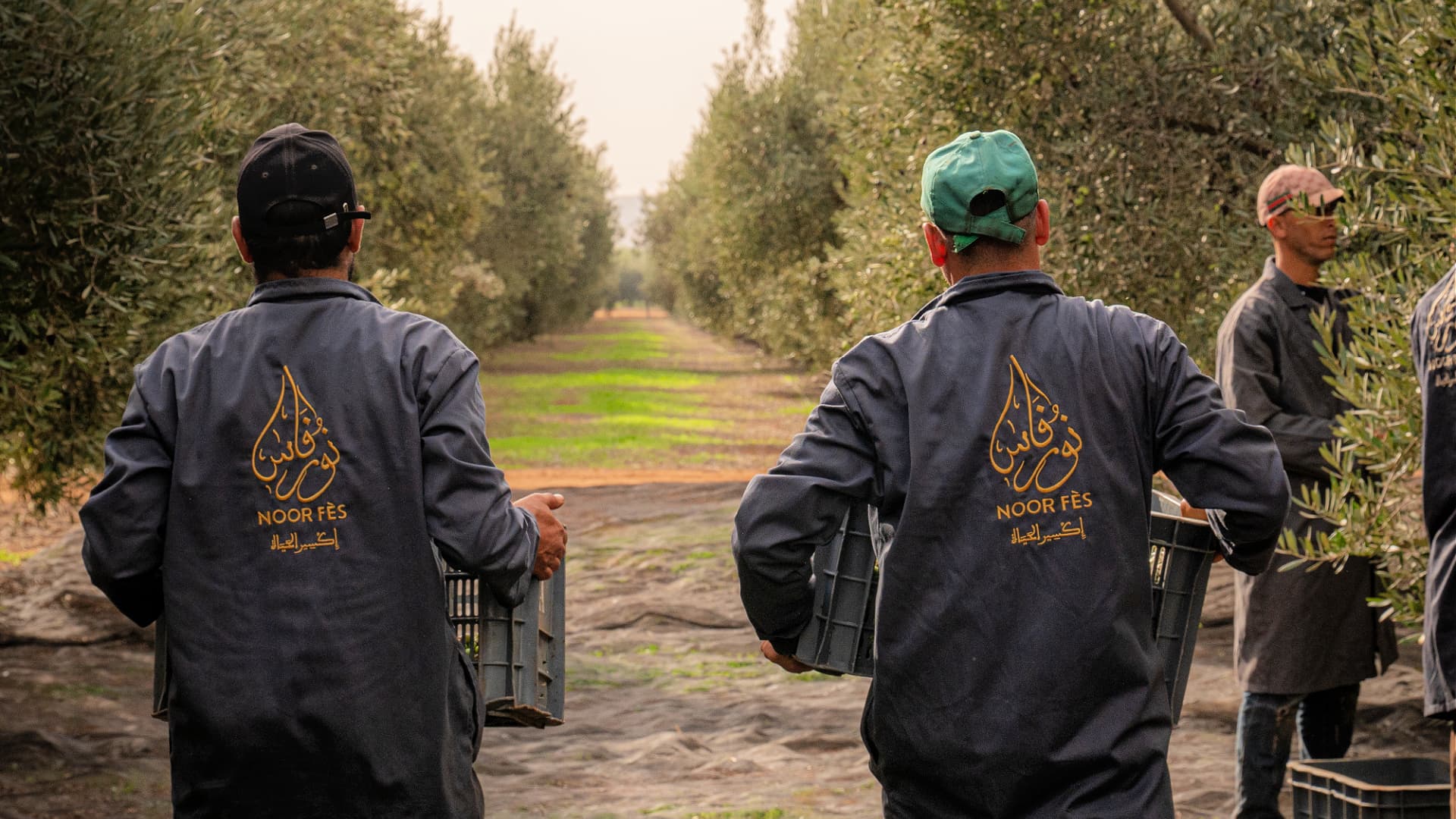
The name Noor Fès means “Light of Fès,” where light is conceived as a metaphor for vitality and well-being. (Photo: Noor Fès)
According to the two producers, sustainability is at the very core of the company’s operations.
“Our farming philosophy is rooted in regenerative and biodiverse agriculture; we protect the soil by using crushed pruning debris as natural fertilizer and biomass,” Dakir Berrada and Tazi said.
“We also use organic practices to respect natural ecosystems and avoid polluting substances. This ensures environmentally responsible production and long-term sustainability,” they added.
A crucial aspect of this approach is water management. “Water is one of our top concerns. We use advanced technology to monitor soil moisture, tree transpiration and evaporation,” Dakir Berrada and Tazi said.
Devices, such as tensiometers, dendrometers and a dedicated weather station, help the company monitor orchard conditions.
“We rely on localized, precision drip systems that deliver exactly what each tree needs — no more, no less. We even irrigate at night to reduce evaporation,” Dakir Berrada and Tazi said.
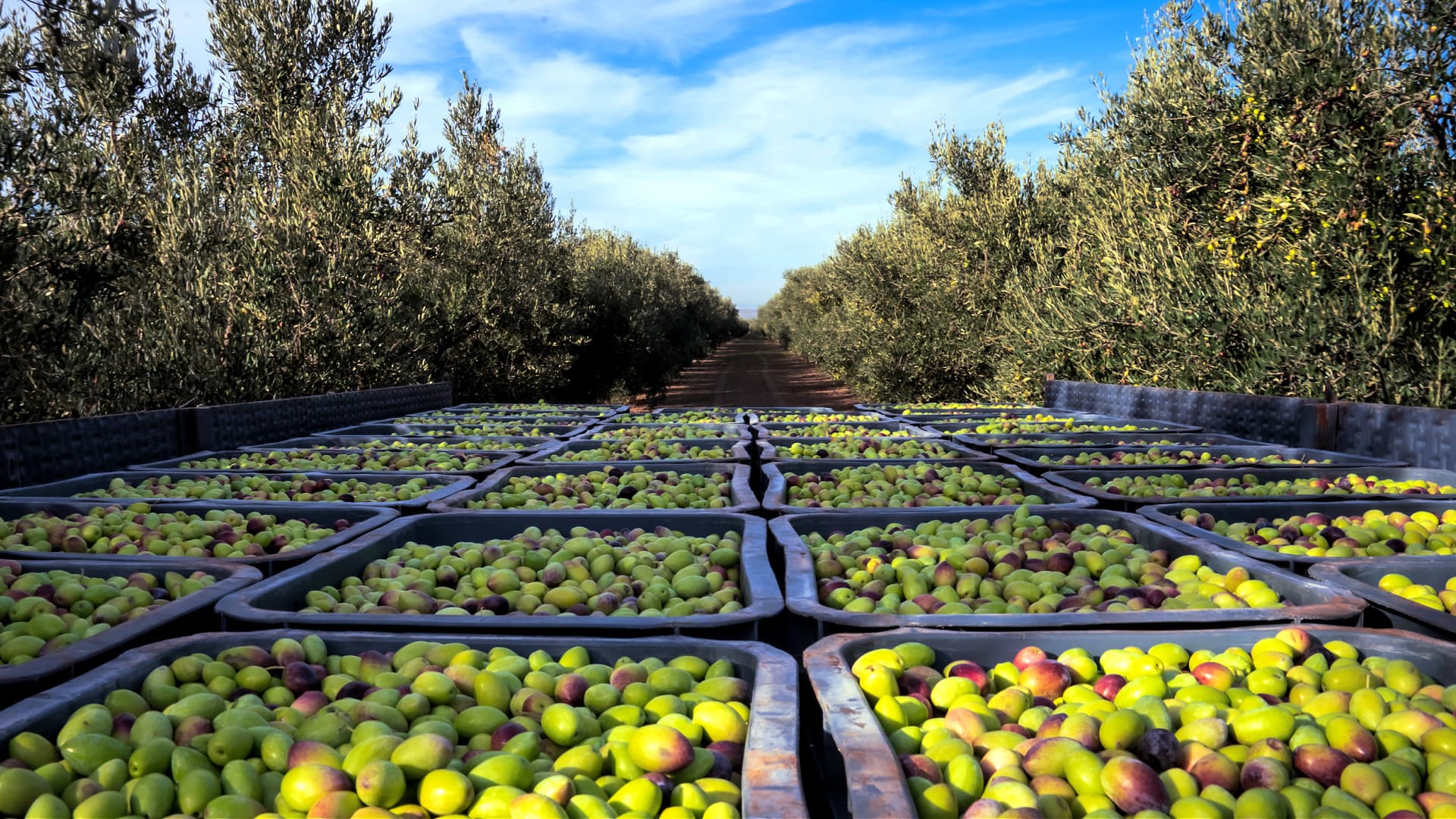
The producers at Noor Fès said the coming olive season looks promising. (Photo: Noor Fès)
The company’s state-of-the-art milling facility also uses a minimal amount of water. “The residual water from olive washing is settled and filtered before being safely returned to the environment or the groundwater,” they added.
Dry weather has affected Morocco in recent years, with significant consequences for agriculture. Noor Fès is also facing the challenges brought by persistent drought.
“We experienced a reduced harvest due to adverse weather conditions last season,” Dakir Berrada and Tazi said.
“The lack of rain in Morocco was a disaster. Climate change is now a global issue, and it is increasingly affecting olive production,” they added.
According to the company, the outlook for the coming olive season is promising. “As always, the main challenge remains water availability,” Dakir Berrada and Tazi said. “Climate change is reshaping our environment, but it also pushes us to do better.”
They added that their olive oil, produced using “regenerative and biodiverse systems,” is part of their vision for a sustainable future for Moroccan olive oil production.
To that end, the company offers olive oil tastings and allows visitors to explore the modern olive oil production process.
“We are doing a lot of consumer education: how to choose a good olive oil, how it should be pressed, how it should be stored, how it should be bottled, and more,” Berrada and Tazi concluded.
Share this article



